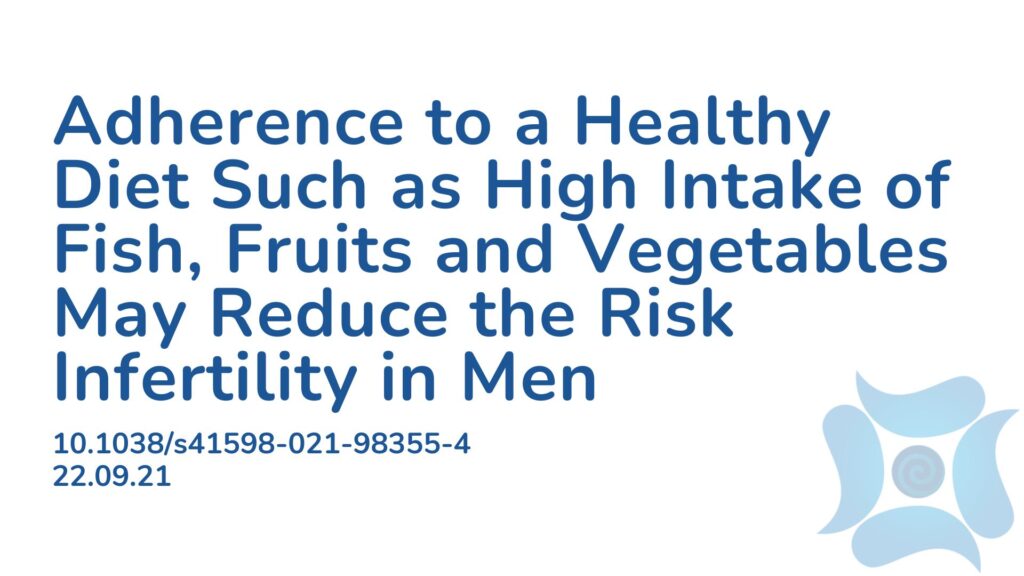Summary: This study looked at the association between dietary patterns and the status of infertility in a large male population. The results showed that adherence to a healthy dietary pattern such as a high intake of fish, eggs, dairy products, fruits, vegetables and other plant based foods may reduce the risk of infertility. In contrast, adherence to other diets such as a typical Western diet might be associated with the increased risk of male infertility. Due to its large sample size, this study provides detailed insights into the relationship between the risk of male infertility and diet and provides direction for future research into male fertility.
Abstract:
In this case–control study, we aimed to investigate the association between major dietary patterns and fertility status in Iranian men. The study population included 400 newly diagnosed infertile men and 537 healthy individuals without a history of infertility in Yazd, Iran. Infertility was confirmed clinically, based on the World Health Organization (WHO) criteria. Dietary intake was assessed using a 168-item semi-quantitative food frequency questionnaire (FFQ), and dietary patterns were determined based on a principal component analysis. Four major dietary patterns were found in this study, including healthy, Western, mixed, and traditional dietary patterns. After adjustments for potential confounders, men above the median of a healthy dietary pattern showed a reduced risk of infertility compared to those below the median (OR 0.52; 95% CI 0.33–0.83). In contrast, men with greater adherence to Western and mixed dietary patterns were more likely to be infertile (OR 2.66; 95% CI 1.70–4.17 and OR 2.82; 95% CI 1.75–4.56, respectively). Also, there was no significant association between the traditional dietary pattern and the odds of infertility. The present study suggests that greater adherence to a healthy dietary pattern may have an inverse association with the odds of infertility; however, Western and mixed dietary patterns may be associated with an increased risk of infertility.
Article Publication Date: 22.09.21
DOI: 10.1038/s41598-021-98355-4



